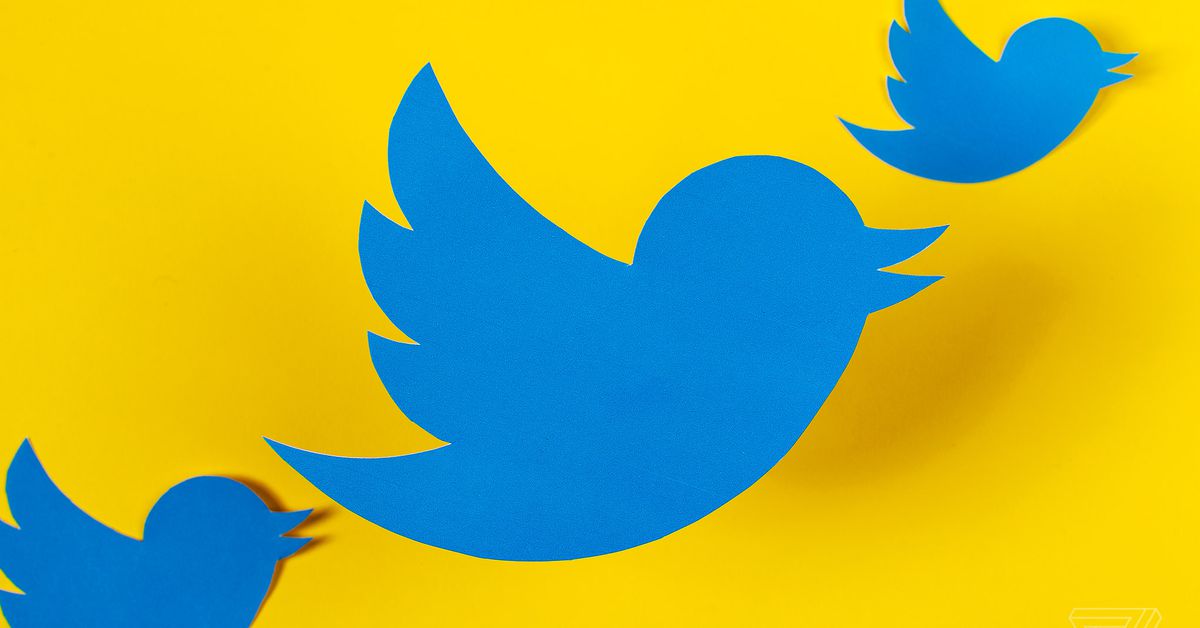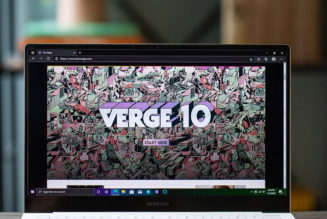
Last week, the worlds of technology and journalism were transfixed by a conflict that played out across across Instagram, Twitter, and the upstart audio-only social network Clubhouse. One reason it generated so much attention — you can read thorough accounts from varying perspectives at Vice, on Quora, or this venture capitalist’s Substack — is that you can approach the drama from so many angles. But despite the best efforts of everyone here, I still think the most clarifying way to understand the story of Steph Korey, Taylor Lorenz, Balaji Srinivasan, venture capital, and Clubhouse has mostly gone unspoken. And those who fail to see it, I think, could be in for a rude awakening of their own.
Let me start with a brief recounting of events — and acknowledge that I played a role in some of them. The conflict began with an investigation into the travel company Away in The Verge for which I served as an early editor; that story was written by Zoe Schiffer, my partner in bringing this newsletter to you every week; and the most recent controversy started after my friend Taylor Lorenz called attention to some comments that Korey, Away’s CEO and the subject of the original investigation, had made on Instagram. (Among those comments: “defamation lawsuits should be easier to pursue.”) Srinivasan, an investor and vocal media critic, took exception, and mocked Lorenz’s tweets. Lorenz, in turn, said Srinivasan had been harassing her with tweets for months, and Twitter’s native tribalism took over.
Journalists and their allies rallied to Lorenz’s side, myself included — no journalist deserves to be harassed or threatened. Other investors and those sympathetic to Srinivasan’s anti-journalism threads joined in the shouting. From a distance, it seemed like little more than the latest salvo in a conflict between journalists and Silicon Valley that has escalated significantly this year.
But what if you take the whole discussion of “tech versus journalism” and reframe it as “managers versus employees”? Then, I think, you get closer to the truth of what’s going on.
After all, this conflict started with employees. They were the people who initially described their working conditions under Korey at Away, leading her to step aside as CEO. (She later returned, only for the company to say she would step aside later this year after her comments about the media on Instagram.)
The employees made their comments at a time of increasing activism inside workplaces. Since the Google walkout in 2018, employees of venture-backed startups and public companies have become increasingly comfortable in speaking out — often using social media platforms to call out their employers. This trend has only accelerated since the Black Lives Matters protests swept the nation last month — which, among other things, led to the first-ever virtual Facebook walkout a few weeks later.
Until recently it was relatively unusual for employees to contact journalists directly with complaints about their workplaces — much less broadcast them on Twitter with no warning. But the Google walkout — which took place as much on Twitter as it did outside the company’s offices — showed workers that their stories would find a sympathetic audience on social networks.
Workers still face significant obstacles as they lobby to create more fair and equitable workplaces. But Twitter in particular has given them a place where not only can they be heard, but — crucially — employers can’t really fight back. If you tweet that you hate your manager, your manager is almost certainly not going to tweet back at you. (They can fire you, and say that it’s for unrelated reasons, and in fact they do this. But this often leads to more tweets about how bad the manager is, which means mostly they do nothing immediately.) Thus tweets have given workers an asymmetric advantage in the unrest — a one-sided argument is easy to win — and we’re seeing it play out in new ways all the time.
This dynamic, which is tilted heavily against bosses, goes a long way in explaining the disdain that the managerial class has for what they call “hit pieces.” A “hit piece,” in angry Twitter parlance, is typically a piece of journalism in which one or more employees are granted anonymity to talk about their working conditions. Journalists, myself included, would simply call that reporting. But it’s the kind of reporting that tilts the balance away from managers and toward their employees — and in ways that are difficult to fight back against.
It’s true that this dynamic raises questions of fairness. Not every person who hates their boss has been mistreated.
And yet, does anyone doubt that over the past 20 years, we’ve heard fewer accounts of the inner workings of big venture-backed companies than we would have liked to have? The inequalities that we have heard so much about in recent years took decades to build up, and during that time it has been relatively rare for a journalist to hear from employees directly on the subject. Instead for the most part they were funneled to a public relations person, whose job was primarily to contain any damage to the company.
That’s why, when I hear “hit piece,” I know I’m probably hearing from a manager. Managers liked the pre-walkout world, for obvious reasons. These recent pieces really do feel like hits, and the managerial class has no obvious way to hit back in a way that won’t harm its own reputation.
And so it shouldn’t be surprising, when a prominent reporter like Lorenz calls attention to posts like Korey’s, the managerial class rises to Korey’s defense. When CEOs can be held accountable not just for their working conditions but for social media defenses of their work, that represents a threat to the entire managerial tribe. And that explains how venture capitalists, who have millions of dollars at their disposal and could comfortably retire without ever participating in a single Twitter fight, have nonetheless come to see themselves as the underdogs in this situation. They got where they are in part because they’ve been good at winning arguments, and now they find themselves living in a world where they get punished for arguing.
Certainly, the worlds of tech and venture capital have complaints about journalism that go beyond hit pieces. Friends and sources criticize journalists for scapegoating them for larger issues — blaming Facebook alone for the election of Donald Trump, for example. And journalists often wind up criticizing tech companies from both sides of an issue — complaining that they both leave up too many bad posts and take down too many good ones, for example. The exasperation is real, even if the scrutiny is a natural consequence of starting a company that aims to change the world.
But the next time you see journalists and tech overlords going a few rounds online, ask yourself whether what you’re looking at isn’t, on some level, a labor issue. Journalists have lately been part of this story more than they are usually comfortable with. But I wouldn’t make the mistake of thinking that this is primarily about us.
It might not be visible from the luxury Airbnbs where tech executives are riding out the pandemic, but there is a resurgent labor movement in this country. The pandemic has made clear that many of our most essential workers are also among the lowest paid — and even for the most comfortable, it’s clear that during a time of crisis neither their company nor the US government will fully protect them from disaster.
You can attribute it to the pandemic, the recession, police brutality, racism, or any number of other crises — but the result is a fire tornado of outrage that is sweeping across the country. Any number of industries are getting caught up in it, and many managers are finding themselves suddenly without jobs as a result. (It is probably not a coincidence that this is most true of the media industry, whose workers are more adept at using Twitter to air their grievances than most.)
Workers are justifiably outraged about the state of affairs in this country, and some of that outrage is being captured by journalists. I find it darkly comic that so many CEOs and tech world Twitter pundits, who never stop congratulating themselves for thinking deep thoughts, are committing the folly that goes back to Plutarch: getting some bad news, and then taking it out on the person who brought it to them.
If pundits succeeds in shooting all the messengers, what else will they fail to understand before it’s too late?
Coming Tuesday: The Verge brings you further inside Clubhouse. And in this column: what does the CEO’s past at Pinterest and Highlight tell us about his approach to moderation and privacy?
The Ratio
Today in news that could affect public perception of the big tech platforms.
Trending up: Facebook pinned a box with information about voter registration on the top of the News Feed for every US user who is of voting age. The box includes a link to your state’s registration website. (Jay Peters / The Verge)
Trending down: An African American manager and two job applicants who were rejected by Facebook filed a complaint against the company. They’re alleging that the social media giant is biased against black employees in evaluations, promotions, pay and hiring practices. (Elizabeth Dwoskin / The Washington Post)
Governing
⭐ Google, Facebook, and Twitter won’t process user data requests from the Hong Kong government amid concerns that a new security law could criminalize protests. It’s unclear what actions will be considered to violate the new law, but police arrested a man last week for brandishing a Hong Kong independence flag. Here’s Kurt Wagner at Bloomberg:
Facebook typically works with law enforcement to follow local laws where the company operates, but said it has paused sharing user data with Hong Kong authorities while it conducts a “human-rights” assessment. The pause applies to all Facebook properties, including its core social network, Instagram and WhatsApp.
“Freedom of expression is a fundamental human right and support the right of people to express themselves without fear for their safety or other repercussions,” a Facebook spokesperson said in a statement. “We have a global process for government requests and in reviewing each individual request, we consider Facebook’s policies, local laws and international human-rights standards.”
More than 400 brands, including Coca-Cola and Starbucks, stopped advertising on Facebook on Wednesday. Facebook executives tried to meet with advertisers before the boycott to explain how the company would handle hate speech on the platform. (Sheila Dang and Katie Paul / Reuters)
Facebook’s tensions with advertisers have been brewing since long before the current boycott. Marketers have long criticized the company for what some call a lack of commitment to brand safety — keeping their ads away from objectionable content. (Sahil Patel and Nat Ives / The Wall Street Journal)
Walmart, American Express, and Home Depot have not pulled ads from Facebook. Of the 25 largest spenders on Facebook ads last year, only Microsoft, Starbucks and Pfizer have paused marketing on the platform. (Brian Fung and Kaya Yurieff / CNN)
Joe Biden’s campaign is not pulling his advertising from Facebook. A spokesperson said that while it shares the boycotters’ concerns, it “cannot afford to cede these platforms” to President Donald Trump. (Sarah Mucha / CNN)
Facebook said right-wing pundit Ben Shapiro is breaking its rules by failing to disclose a financial relationship between The Daily Wire, a website he founded, and the notorious outlet Mad World News. The Daily Wire gained record distribution on Facebook through a previously undisclosed relationship with Mad World News. (Popular Information)
Twitter removed a picture from a tweet by President Trump after it received a Digital Millennium Copyright Act complaint from the New York Times, which owns the rights to the photo. (Sara Fischer / Axios)
The Senate Judiciary Committee voted to approve the EARN IT Act, a bill that would weaken Section 230 protections to ensure social media companies remove child abuse imagery from their platforms. The most recent version seems to pose less of a threat to encryption in messaging apps, but I still worry. (Makena Kelly / The Verge)
Nextdoor CEO Sarah Friar said the company should have moved more quickly to protect posts related to Black Lives Matter by providing clearer guidance to moderators. (Bobby Allyn / NPR)
Reddit communities that were recently banned in an effort to curb hate speech on the platform had already been relocating to other websites for months. The news suggests that users were expecting the ban — and serving as a reminder that “de-platforming” often comes long after it could have done the most good. (Sarah Emerson / OneZero)
Police monitored 100 million encrypted messages sent through Encrochat, a network used by career criminals to discuss drug deals, murders, and extortion plots. It represents one of the largest law enforcement infiltrations of a communications network predominantly used by criminals ever. (Joseph Cox / Vice)
Amazon’s contracted delivery drivers say that their workloads have dramatically increased during the COVID-19 pandemic. Skyrocketing quotas have made conditions for the drivers grueling and dangerous. (Lauren Kaori Gurley / Vice)
An international team of scientists has started to develop a model that could predict outbreaks about two weeks before they occur. It could help state and local governments know when it’s safe to roll back shelter-in-place restrictions. (Benedict Carey / The New York Times)
Clearview AI will stop offering its facial recognition services in Canada, following an investigation by privacy protection authorities in the country. The investigation, which focuses in part on the information of Canadians that Clearview has already collected, remains open.
Industry
⭐ Instagram expanded its TikTok rival called Reels in India, following the government’s decision to ban TikTok and dozens of other Chinese apps over security concerns. In addition to India, Instagram Reels is live in Brazil, and as of recently, France and Germany. Here’s Sarah Perez at TechCrunch:
Unlike Lasso, which had been its own separate app, Reels has been designed to be a feature within Instagram itself. Reels allows users to create and post short, 15-second videos set to music or other audio, similar to TikTok. Also like TikTok, the feature offers a set of editing tools — like a countdown timer and those that adjust the video’s speed, for example — that aim to make it easier to record creative content. However, Instagram doesn’t have the same sort of two-tabbed, scrollable feed, like TikTok offers, just for watching Reels’ content.
Also: Roposo, an Indian video-sharing app similar to TikTok, saw its user base jump by 22 million in the two days after India banned the Chinese apps. (Sankalp Phartiyal / Reuters)
Facebook is shutting down Lasso, a TikTok look alike it launched a year and a half ago. The app will shut down on July 10th. (Manish Singh / TechCrunch)
Facebook is launching a curriculum on digital safety and online well-being and augmented reality for students and educators in India. It hass partnered with the Central Board of Secondary Education, a government body that oversees education in private and public schools. (Manish Singh / TechCrunch)
Facebook and Instagram are reminding people to wear face masks. An alert will appear at the top of News Feeds on Facebook that directs users to the COVID-19 Information Center. Good! (Kim Lyons / The Verge)
A Nigerian Instagram influencer was extradited to the US from Dubai to face fraud charges. Ramon Olorunwa Abbas, widely known as “Hushpuppi,” faces criminal charges “alleging he conspired to launder hundreds of millions of dollars from ‘business email compromise’ (BEC) frauds and other scams,” according to the Department of Justice. (William Clowes / Bloomberg)
Prison TikTok is the latest subgenre to gain popularity in the app. Inmates use contraband cell phones to share dancing videos and funny skits, as well as broadcast information about conditions at their facilities. (Louise Matsakis / Wired)
YouTuber Shane Dawson is struggling to address his past use of racist characters in videos. His main channel lost nearly 1 million subscribers last week, and his corporate partners have started to drop him. (Julia Alexander / The Verge)
Things to do
Stuff to occupy you online during the quarantine.
Throw a watch party on Amazon. Prime Video is the latest streaming service to offer the feature.
Build your own camera with a Raspberry Pi 4. The Verge’s Becca Farsace shows you how.
Host a charity stream. Verge reporter Bijan Stephen explains how he did it, and how you can too.
Those good tweets
My gym just went bankrupt. Who’s the quitter now?
— Raag Agrawal (@raagagrawal) July 2, 2020
Watch Hamilton with a critical eye. There are some major historical inaccuracies. Many of these large musical numbers never happened.
— James Colley (@JamColley) July 3, 2020
Talk to us
Send us tips, comments, questions, and complaints about your boss: casey@theverge.com and zoe@theverge.com.










